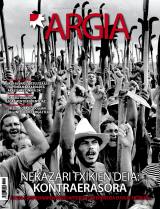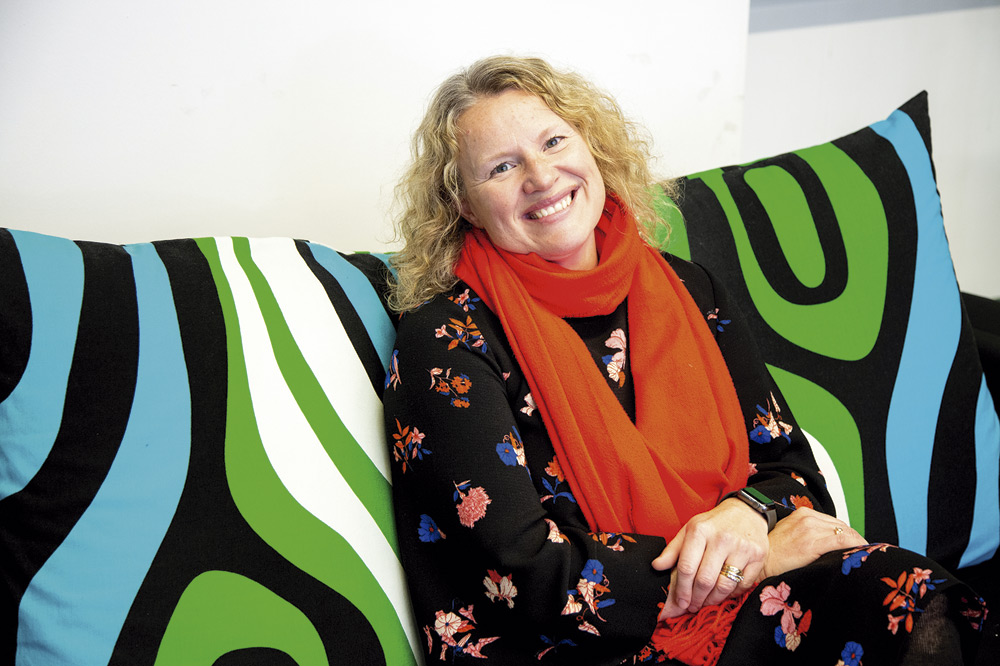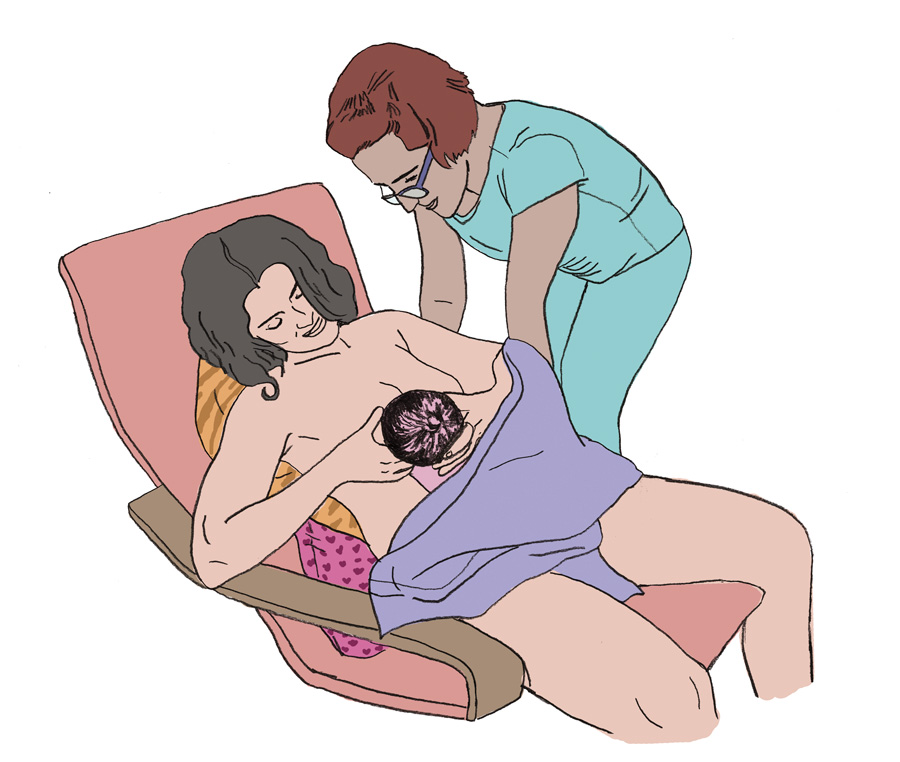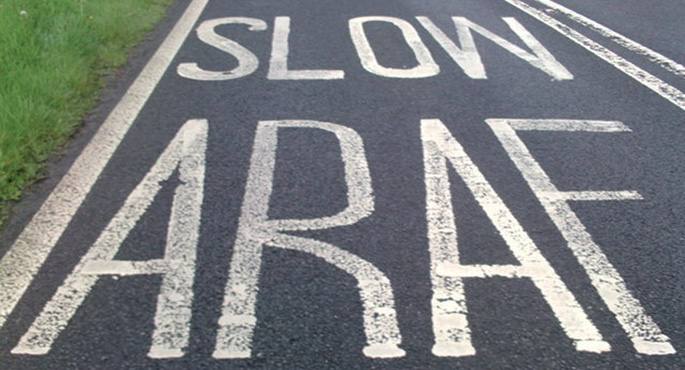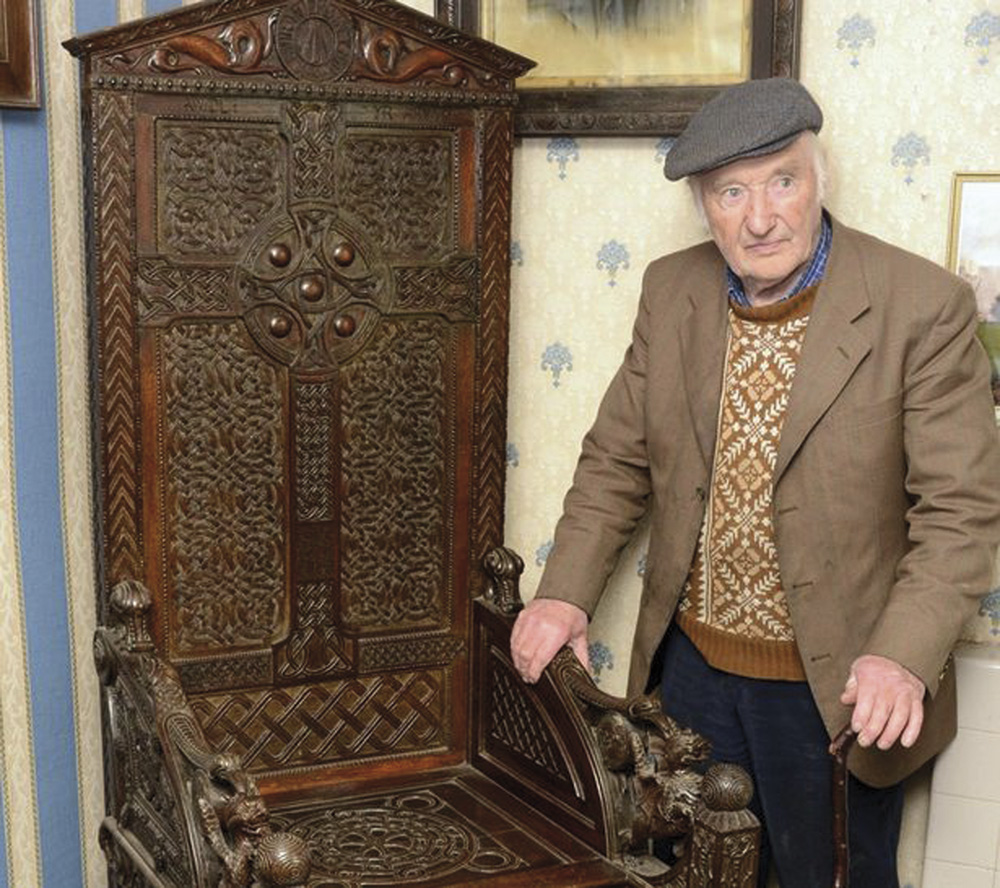
At the end of July the centenary of the murder of one of the highest representatives of literature in Welsh will be remembered. Ellis Humprey Evans, nicknamed Hedd Wyn, found death in the mud of Flanders during World War I. In his poems he wrote about his homeland and about peace, but he inevitably died away from home and in the midst of war. A few weeks later, a poem sent from the trenches won the most famous contest in Wales.
The farm called Yr Ysgwrn was a silent witness to the tragic story of Hedd Wyn. This lonely house is located near the town of Trawsfynydd, on the slopes of the abrupt mountains of North Wales. Ellis Humprey Evans lived there from when he was a boy until he had to go to war. He grew up and was educated in a rural environment, in a traditional society that lived in an exclusively gastric environment. His poetry revolves, above all, around his homeland and his fellow citizens. He entered into the tradition of the barbarians who have spent centuries in the Celtic villages, and following the suggestion of another bard, he adopted the nickname Hedd Wyn. It means holy peace or white peace.
He was indeed a great pacifist at Hedd Wy. “He was a Christian and, although strictly speaking it was not a disturbing conscience, he did not want to take up arms or kill anyone else,” says Naomi Jones. Jones is the head of education and communication of the Eryri Natural Park Authority, responsible for safeguarding the heritage of the writer and of the Yr Ysgwrn estate.

Reading the great poets of England and Wales enriched his style the young Hedd Wyn, who wrote his first poem at the age of eleven. According to Naomi Jones, Hedd Wyn was a romantic author who frequently used images of nature. He was awarded in several literary contests, called Eisteddfod. These types of meetings are organized from the Middle Ages and are one of the main features of the Welsh language and culture. Anyway, the great Eisteddfod, its pompous annual quote, had not yet won when the tragic summer of 1917 came.
Caserus work and poetry were the axes of Hedd Wyn's life, until the call to the Great War came to him at the door. I had gone to the endless pits of Flanders in that July, rainy and dark, a hundred years ago. There were only a few weeks left for the 1917 literary contest and sent to the competition the poem written on the front Yr Arwr (The Hero). “It’s a poem that calls for peace on earth,” said Naomi Jones. On the morning of July 31, the first day of the battle of Pilckem Ridge, a bullet reached him in his stomach. I was 30 years old.
Before the unfortunate end of the war to one of the greatest Welsh writers, 6 September was celebrated in the English city of Birkehnead the Great Eisteddfod. They used to give the author of the best poem of the competition a carved wooden chair, and on this occasion they also had prepared the beautiful chair made by the flamenco teacher of Eugeen Vanflete. The jury president announced that the winner was Hedd Wyn, but the festival's Grand Druid explained to attendees that the writer had been killed in the war six weeks earlier. The winner’s seat was covered with a black fabric and has since been known as Y Gadair Ddu, that is, the Black Chair.
The chair was moved to the Yr Ysgwrn farm, where it is still today. “Soon people began to come from all corners of Wales, even outside, to see the chair and to give condolences to the family,” explains Naomi Jones. “The Black Chair became a symbol, not only of Hedd Wyn, but of the 40,000 Welsh people who died in World War I, that empty chair is a memory of the empty chairs that remained in many Welsh homes.”
In addition to Yr Arwr, winner of the Great Eisteddfod, Hedd Wyn published many other memorable poems. Although he also worked well in English, he almost always wrote in Welsh, as it was the language of his home. That's why the death of the poet left a huge cultural vacuum, as he was the most important writer of the early 20th century in Wales. If they hadn't killed him so young, who knows how far he'd come.
Lauaxeta de Wales
In this sense, the absence of Hedd Wyn reminds of what happened twenty years later in Hego Euskal Herria. The war of 1936 extinguished the rebirth of Basque literature and language, culture was one of the victims of the war in both Wales and Basque Country. The routes of Hedd Wyn and Lauaxeta have a great similarity.
Both Hedd Wyn and Lauaxeta
were
deeply acquainted with foreign
literature and chose
to write in Welsh and Basque.
Raised in a rural environment, Ellis Humphrey Evans and Steppes Urkiaga wrote to nature and their homeland in a traditional and idealized way of life. The two of them knew the foreign literature deeply, but they chose to write in Galician and Basque. The fact that they were believing Christians is evident in the poetry of Hedd Wyn and Lauaxeta. They were touched by the time of the war and were killed at a similar age, still young. The program will recall the centenary of Hedd Wyn's death the same year as the 80th anniversary of Lauaxeta's shooting. You can say that Hedd Wyn is the Lauaxeta in Wales, or maybe Lauaxeta is the Hedd Wyn in the Basque Country.
A hundred years later, Hedd Wyn is one of the great myths of Welsh literature and language. Gerald Williams, the poet's nephew, lives on Yr Ysgwrn's farm and, as his ancestors did, welcomes all visitors. He didn't meet his uncle, but he knows all the anecdotes about Hedd Wyn and the Black Chair. “At home he was called Ellis and although he was famous all over Wales, his parents gave him the same treatment as their other children,” Williams says. “Poetry was his passion, until late I wrote.”
The authority of Eryri Natural Park, which bought Yr Ysgwrn in 2012, has completely renovated its property to continue to transmit the legacy of Hedd Wyn from generation to generation. The most valuable piece of this house that has the legal protection of the protected heritage is the Black Chair, also carefully restored. Gerald Williams is “proud” to be able to inform visitors about his uncle. “My grandparents, Hedd Wyn’s parents, always welcomed people with joy and I also enjoy, especially when I feel the curiosity of young people.” In addition to telling his uncle's anecdotes, Williams sends a clear message to young generations: “At Yr Ysgwrn, you see that war is devastating and I hope that that makes you want to build a better world.”
Galesi buruz umorez aritzeko twitter kontuan (Welsh Bollocks) aurkitu dugu esaldia. Hizkuntza bakarra jakiteak dituen “onurak” deskribatu dituzte.
Ohe gainean gales hiztunak direla jarriko du, osasun langileek jakin dezaten eta hizkuntza horretan artatu ditzaten.
"Ras yr iaith" Galeseraren aldeko Korrika abiatuko da asteazkenean. 25 herri zeharkatuko ditu iparraldetik hegoaldera, eta ostiralean amaituko da. Bigarren edizioa du ekimenak, aurrekoa orain bi urte 2014an egin zuten.
Orain gutxi jakinarazi dute Galesen ere lehen aldiz egingo dutela "Korrika" ekainean, Ras yr Iaith izenpean (hizkuntzaren lasterketa). Ekainaren 20an izango da, ostiralean eta 22 kilometroko ibilbidean bederatzi herritatik igaroko da.
New research has been found in Wales, including young people being asked about the use of Welsh. Half of the young people, between the ages of 16 and 24, say they are able to speak of Galicians fluently. One in three uses the Welsh with their friends.
Carmarthenshire is the... [+]
’Ras yr Iaith’ da galeseraren aldeko lasterketaren izena eta lehen edizio hau behintzat, 3 egunekoa izango da.
"Zergatik txiokatzen dute euskaldunek, galesdunok halako bi?" tituludun artikulua argitaratu du Rhodri ap Dyfrig Aberystwyth Universityko irakasleak bere blogean, euskara darabilten kontuen kopurua eta galesa darabiltenena berdintsuak direla kontuan izanda.
S4C galeserazko telebista kateak 2012ko azaroaren 2an ospatu zituen 30 urte antenan, ETBk baino aste batzuk lehenago.









